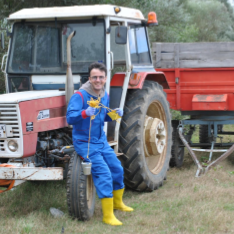 Environmental pollution has an enormous impact on organisms and it is one of the greatest global problem. Water pollution is a subset of environmental pollution that focuses on water systems. In BIOMIG, one of the our research topics includes river pollution and hazardous contaminants. According to the research made by York University based on 258 rivers around the world, Ergene River is among the most polluted 20 percent of the world in terms of active pharmacological contaminants (1). Furthermore, micropollutants are also emerging contaminants lately and in a recent researh, 165 micropollutants were detected at a range of concentrations between 1.90 ng/L and 1824.55 μg/L in Ergene River (2). These studies show how big and worrying this problem is and we need to develop highly effective solutions in a short time to overcome.
Environmental pollution has an enormous impact on organisms and it is one of the greatest global problem. Water pollution is a subset of environmental pollution that focuses on water systems. In BIOMIG, one of the our research topics includes river pollution and hazardous contaminants. According to the research made by York University based on 258 rivers around the world, Ergene River is among the most polluted 20 percent of the world in terms of active pharmacological contaminants (1). Furthermore, micropollutants are also emerging contaminants lately and in a recent researh, 165 micropollutants were detected at a range of concentrations between 1.90 ng/L and 1824.55 μg/L in Ergene River (2). These studies show how big and worrying this problem is and we need to develop highly effective solutions in a short time to overcome.

Exposure of such contaminants for a long time also has an incredible effect on bacterial evolution. In the studies we carried out in our laboratory, we have shown that long term exposure of quaternary ammonium compounds (QACs) which are the high production volume chemicals changes the structure of the bacterial community and increases the selection of resistant strains. This selective pressure also promotes the antibiotic resistance that is another problem that needs more attention. In the research we made in this direction, we found a novel enzyme which can break down the QACs and a novel strain BIOMIG which can biodegrade QACs completely. We have achieved and published its high quality complete genome with using hybrid genome sequencing techniques.

We do not know exactly how these pollutants may affect us and our environment in the long run, and there is much more to be done. Understanding the role of microorganisms on the fate and impact of chemicals in the environment, development of novel biological processes for production of energy, fuels and chemicals from biomass and organic waste streams, and the discovery of novel enzymes, mechanisms and strains are motivations of the research @ BIOMIG.